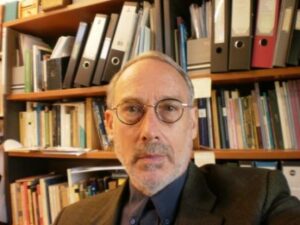John Schuster

Dr John Schuster
- Post Nominals: FAHA
- Fellow Type: Fellow
- Elected to the Academy: 2015
- Section(s): Philosophy And History Of Ideas, History
Biography
A leading authority on the seventeenth-century scientific revolution, Schuster’s work has led to new understandings of the importance and work of René Descartes, and to the relation of intellectual and institutional change in the history of science. His research has shaped historians’ perceptions of the period in fundamental ways, including the central place of natural philosophy in both the scientific revolution and in the work of Descartes. John Schuster studied mathematics, physics, European history and history of science at Columbia University, then early modern history and history of science at Princeton University. He taught at Princeton as well as the universities of Leeds, Cambridge, Wollongong and New South Wales, before retiring to full time research in 2011, in affiliation with the Unit for History & Philosophy of Science, at the University of Sydney. He was President of the Australasian Association for the History, Philosophy and Social Studies of Science on seven occasions and was a member of the National Committee on History & Philosophy of Science of the Australian Academy of Science for six years. He was the only Australian based member of the six person Editorial Board of the Encyclopedia of the Scientific Revolution (2000). He has well defined international reputations for his ground breaking publications on the scientific career of Descartes; the process and historiography of the Scientific Revolution; and the rhetorical and political functions of scientific method. He was one of the first to link the work of Thomas Kuhn to issues in the sociology of scientific knowledge. He has extensive experience in the design of curricula in the history, philosophy and sociology of science and has written two textbooks to that end.
